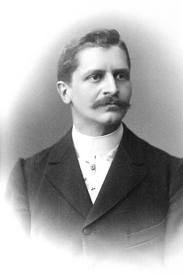
Henri-Louis Bergson was a French philosopher who was influential in the traditions of analytic philosophy and continental philosophy, especially during the first half of the 20th century until the Second World War, but also after 1966 when Gilles Deleuze published Le Bergsonisme. Bergson is known for his arguments that processes of immediate experience and intuition are more significant than abstract rationalism and science for understanding reality.

Étienne Émile Marie Boutroux was an eminent 19th-century French philosopher of science and religion, and a historian of philosophy. He was a firm opponent of materialism in science. He was a spiritual philosopher who defended the idea that religion and science are compatible at a time when the power of science was rising inexorably. His work is overshadowed in the English-speaking world by that of the more celebrated Henri Bergson. He was elected membership of the Academy of Moral and Political Sciences in 1898 and in 1912 to the Académie française.
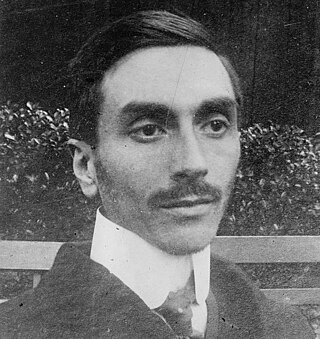
Pierre Léon Boutroux was a French mathematician and historian of science. Boutroux is chiefly known for his work in the history and philosophy of mathematics.
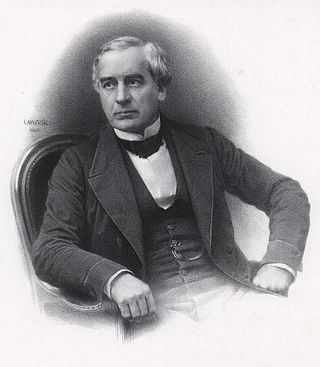
Jules Barthélemy-Saint-Hilaire was a French philosopher, journalist, statesman, and possible illegitimate son of Napoleon I of France.

Émile Boirac was a French philosopher, parapsychologist, promoter of Esperanto and writer.
Léon Brunschvicg was a French Idealist philosopher. He co-founded the Revue de métaphysique et de morale with Xavier Léon and Élie Halévy in 1893.

Jean André Wahl was a French philosopher.
Jean Guitton was a French Catholic philosopher and theologian. Le Monde called him "the last of the great Catholic philosophers."

Alfred Jules Émile Fouillée was a French philosopher.
Georges Politzer was a French philosopher and Marxist theoretician of Hungarian Jewish origin, affectionately referred to by some as the "red-headed philosopher". He was a native of Oradea, a city in present-day Romania. He was murdered in the Holocaust.
Édouard Louis Emmanuel Julien Le Roy was a French philosopher and mathematician.

Jules Vuillemin was a French philosopher, Professor of Philosophy of Knowledge at the prestigious Collège de France, in Paris, from 1962 to 1990, succeeding Maurice Merleau-Ponty, and Professor emeritus from 1991 to 2001. He was an Invited Professor at the Institute for Advanced Study, in Princeton, New Jersey (1968).
Xavier Léon was a French-Jewish philosopher and historian of philosophy.
Georges Dwelshauvers, who also wrote under the pseudonym Georges Mesnil (1866–1937) was a Belgian philosopher and psychologist. He was the brother of the art critic and anarchist Jacques Mesnil.
Charles Baudouin was a French psychoanalyst and pacifist. His psychoanalytical work combined Freudianism with elements of the thought of Carl Jung and Alfred Adler.
Émile Lasbax was a French philosopher and sociologist of the early 20th century.
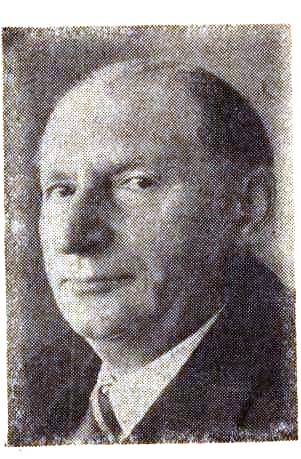
Alabert Fogarasi, also known as Béla Fogarasi was a Hungarian philosopher and politician.

Jean-Louis Vieillard-Baron is a French Roman Catholic philosopher. He is Professor Emeritus of Philosophy at the University of Poitiers and Professor of the Philosophy of Religion at the Institut Catholique de Paris. He is the author of many books about Bergson and Hegel. He is an expert on spiritualism.
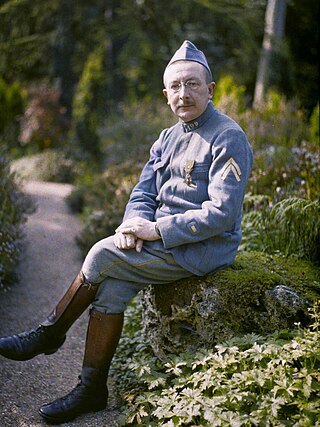
Félicien Robert Challaye was a French philosopher, anti-colonialist and human rights activist.
André Metz was a French officer and popularizer of physics.
